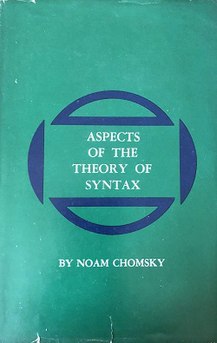
Cognitive science is the interdisciplinary, scientific study of the mind and its processes. It examines the nature, the tasks, and the functions of cognition. Cognitive scientists study intelligence and behavior, with a focus on how nervous systems represent, process, and transform information. Mental faculties of concern to cognitive scientists include language, perception, memory, attention, reasoning, and emotion; to understand these faculties, cognitive scientists borrow from fields such as linguistics, psychology, artificial intelligence, philosophy, neuroscience, and anthropology. The typical analysis of cognitive science spans many levels of organization, from learning and decision to logic and planning; from neural circuitry to modular brain organization. The fundamental concept of cognitive science is that "thinking can best be understood in terms of representational structures in the mind and computational procedures that operate on those structures."
The following outline is provided as an overview of and topical guide to linguistics:
Natural-language understanding (NLU) or natural-language interpretation (NLI) is a subtopic of natural-language processing in artificial intelligence that deals with machine reading comprehension. Natural-language understanding is considered an AI-hard problem.
Cognitive science is the scientific study either of mind or of intelligence . Practically every formal introduction to cognitive science stresses that it is a highly interdisciplinary research area in which psychology, neuroscience, linguistics, philosophy, computer science, anthropology, and biology are its principal specialized or applied branches. Therefore, we may distinguish cognitive studies of either human or animal brains, mind and brain

George Armitage Miller was an American psychologist who was one of the founders of the cognitive psychology, and more broadly, of cognitive science. He also contributed to the birth of psycholinguistics. Miller wrote several books and directed the development of WordNet, an online word-linkage database usable by computer programs. He authored the paper, "The Magical Number Seven, Plus or Minus Two," in which he observed that many different experimental findings considered together reveal the presence of an average limit of seven for human short-term memory capacity. This paper is frequently cited by psychologists and in the wider culture. Miller won numerous awards, including the National Medal of Science.

Syntactic Structures is a major work in linguistics by American linguist Noam Chomsky. It was first published in 1957. It introduced the idea of transformational generative grammar. This approach to syntax was fully formal. At its base, this method uses phrase structure rules. These rules break down sentences into smaller parts. Chomsky then combines these with a new kind of rules called "transformations". This procedure gives rise to different sentence structures. Chomsky aimed to show that this limited set of rules "generates" all and only the grammatical sentences of a given language, which are unlimited in number.
Linguistic competence is the system of linguistic knowledge possessed by native speakers of a language. It is distinguished from linguistic performance, which is the way a language system is used in communication. Noam Chomsky introduced this concept in his elaboration of generative grammar, where it has been widely adopted and competence is the only level of language that is studied.
The Education, Audiovisual and Culture Executive Agency or EACEA is an agency of the European Union located in Brussels, Belgium. It manages parts of the Union's programs in education, culture, and audiovisual fields.
The Copenhagen School, officially the Linguistic Circle of Copenhagen, is a group of scholars dedicated to the study of linguistics. It was founded by Louis Hjelmslev (1899–1965) and Viggo Brøndal (1887–1942). In the mid twentieth century the Copenhagen school was one of the most important centres of linguistic structuralism together with the Geneva School and the Prague School. In the late 20th and early 21st century the Copenhagen school has turned from a purely structural approach to linguistics to a functionalist one, Danish functional grammar, which nonetheless incorporates many insights from the founders.
The European Master on Software Engineering, or European Masters Programme in Software Engineering (EMSE) is a two-year joint Master of Science (Msc) program coordinated by four European universities, funded by the Erasmus+ Programme of the European Union.

Aspects of the Theory of Syntax is a book on linguistics written by American linguist Noam Chomsky, first published in 1965. In Aspects, Chomsky presented a deeper, more extensive reformulation of transformational generative grammar (TGG), a new kind of syntactic theory that he had introduced in the 1950s with the publication of his first book, Syntactic Structures. Aspects is widely considered to be the foundational document and a proper book-length articulation of Chomskyan theoretical framework of linguistics. It presented Chomsky's epistemological assumptions with a view to establishing linguistic theory-making as a formal discipline comparable to physical sciences, i.e. a domain of inquiry well-defined in its nature and scope. From a philosophical perspective, it directed mainstream linguistic research away from behaviorism, constructivism, empiricism and structuralism and towards mentalism, nativism, rationalism and generativism, respectively, taking as its main object of study the abstract, inner workings of the human mind related to language acquisition and production.
The following outline is provided as an overview of and topical guide to social science:
Meaning is a concept used in psychology as well as in other fields such as philosophy, linguistics, semiotics and sociology.

Digital infinity is a technical term in theoretical linguistics. Alternative formulations are "discrete infinity" and "the infinite use of finite means". The idea is that all human languages follow a simple logical principle, according to which a limited set of digits—irreducible atomic sound elements—are combined to produce an infinite range of potentially meaningful expressions.
The following outline is provided as an overview of and topical guide to natural language processing:

Barbara J. Grosz CorrFRSE is an American computer scientist and Higgins Professor of Natural Sciences at Harvard University. She has made seminal contributions to the fields of natural language processing and multi-agent systems.
The QEM, also known as Erasmus Mundus QEM, is an Erasmus Mundus post-graduate master's degree in economics. The program combines "core economic theory with related quantitative disciplines such as Probability, Statistics, Econometrics, Finance, Actuarial Science, Mathematical Modelling, Computation and Simulation, Experimental Design, and Political Science."










